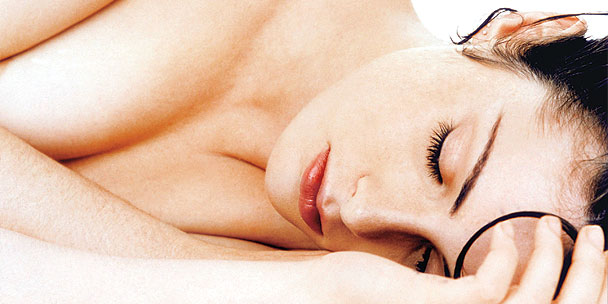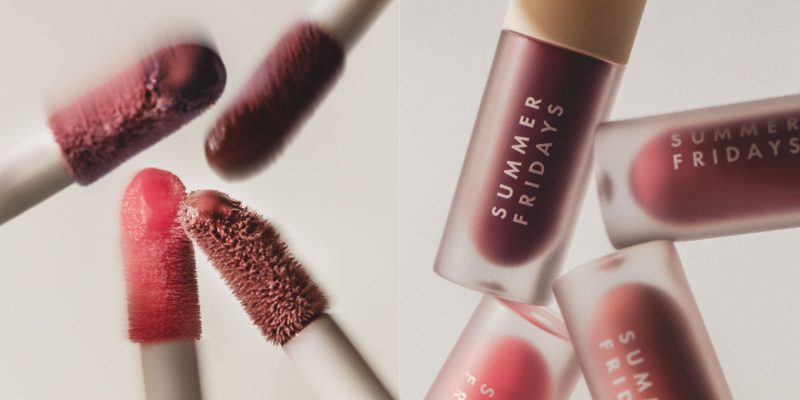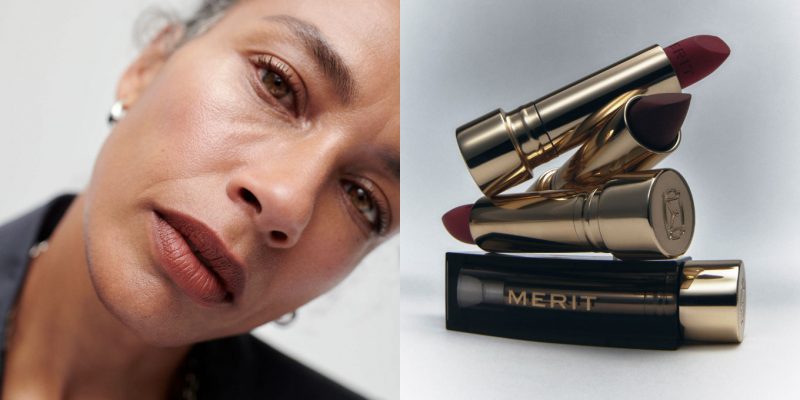Makeup & nails
Sleep fast
The latest weight-loss secret? A good night's sleep.
by : Joan Harting- Mar 10th, 2010

It sounds like a dream come true: Want to lose weight? Get a good night’s sleep.
The long-established twin pillars of sensible weight loss are
diet and
exercise, but now some health professionals are considering adequate sleep to be a third, equally significant factor. Countless studies have linked inadequate sleep to diabetes, heart disease and cancer — not to mention the potential for a compromised immune system, which can leave you more susceptible to bacteria and viruses. In addition, lack of sleep can affect your concentration and mood.
Now, research has turned up an interesting connection between sleep deprivation and weight gain: Lack of sleep can throw off your hormones. Without sleep, ghrelin (the “hunger pang” hormone) increases, while leptin (a natural appetite-suppressing hormone) decreases. What’s more, inadequate sleep affects human growth hormone (HGH) levels. “HGH is a multi-tasker that, among other things, tells your body how to distribute fat,” says Dr. Michael Breus, a clinical psychologist and author of
Beauty Sleep. “With insufficient sleep, you don’t have the appropriate production of HGH and your body isn’t properly directing the fat for use as an energy source, so it ends up where all the other fat is.” The key question is this: What constitutes insufficient sleep? Breus pinpoints the optimum at about 7½ hours of uninterrupted sleep.
Clearly, our 24-7, totally wired lifestyle isn’t conducive to
quality sleep. Studies by Health Canada suggest that one in four Canadians suffers from sleep deprivation, and some 3.3 million of us report bouts of insomnia.
Learn about the different types of insomnia on the next page …

Making the distinction between the two conditions is important, explains Breus. There are three types of insomnia: difficulty falling asleep, difficulty staying asleep and waking too early. Insomnia, or any number of other things, can result in sleep deprivation.
Is napping a smart sleep-deprivation strategy? The people at
YeloSpa in Manhattan certainly think so. They offer 20- to 40-minute power naps in elegant elliptical pods with comfortable zero-gravity chaises. After snoozing to the soundtrack of their choice, clients are gently awakened by a specially designed light show that simulates a beautiful, rosy dawn. Another U.S. company,
MetroNaps, has installed sleeping pods at corporations like Procter & Gamble and Cisco and institutions such as the Savannah College of Art and Design.
Breus says that napping is “great for the sleep-deprived but horrible for insomniacs.” Recent data shows that the last time you were asleep directly affects how long it will take you to fall asleep the next time. If you’re sleep-deprived after a late night, a strategically timed nap (that is, before 2:30 p.m.) is fine, he says, but an insomniac who takes an afternoon nap won’t have built up enough sleep drive to get to sleep that night — it will take two or three times longer than usual.
The restorative quality of a nap is a direct function of its duration, adds Breus. If you nap for less than 35 minutes, you’ll awaken feeling refreshed. The same goes if you take a 90-minute nap because it allows you to go through an entire sleep cycle. “But you won’t benefit from anything between 35 and 90 minutes,” he says. “You might have trouble waking up and feel groggy when you do.”
Read about some sleeping beauty tips on the next page …
The anti-fatigue diet
Running mates: Racy picks for getting back on track

Sleeping Beauty
The latest mattresses and bed linens are imbued with everything from aloe vera to seaweed to copper to improve your appearance while you sleep. The copperoxide- plated fibres in the Skin Glow pillow ($92, bedbathand beyond.com) are designed to eliminate bacteria, fungi and microbes and reduce the appearance of wrinkles and fine lines.
Look for treatments that take advantage of the skin’s natural nighttime cell-repair cycle, like
Estée Lauder’s iconic Advanced Night Repair ($63). The first third of a night’s sleep is when the largest amount of human growth hormone (HGH) is produced. One of HGH’s functions is to enhance the movement of amino acids through cell membranes and increase the rate of protein synthesis, explains sleep expert Dr. Michael Breus, a clinical psychologist and author of Beauty Sleep. “Skin tissue is composed of proteins, so that’s when we see the most tissue and cellular repair,” he says.
California dermatologist Howard Murad’s Sleep Reform Dietary Supplement (currently available only in the United States) contains melatonin as well as Repair Enhancing Matrix, which is said to promote muscle relaxation and encourage sleep while improving its depth and duration to maximize the skin’s repair cycle.
Read more
ELLE body: Cold war
Spring clean your diet
Core conscious: Beyond the sit-up
Newsletter
Join our mailing list for the latest and biggest in fashion trends, beauty, culture and celebrity.
Read Next

Beauty
The Best Met Gala Beauty Looks Of All Time
From Taylor Swift's 'Bleachella' era to Rihanna's iconic 2011 braids, meet the best beauty moments in Met Gala history.
by : Katie Withington- Apr 26th, 2024

Culture
Benny Blanco Says He Fell in Love With Selena Gomez Without ‘Even Noticing’ It
Allow Benny Blanco to tell the straight-from-a-rom-com story of how he realized his feelings for his girlfriend and longtime friend.
by : Alyssa Bailey- Apr 26th, 2024

Beauty
ELLE Tried It: Five Serums to Up Your Skincare Game
Members of the ELLE team tested Avène Dermatological Laboratories’ five new concentrated serums. Here's what they thought.
by : ELLE Canada- Apr 25th, 2024



